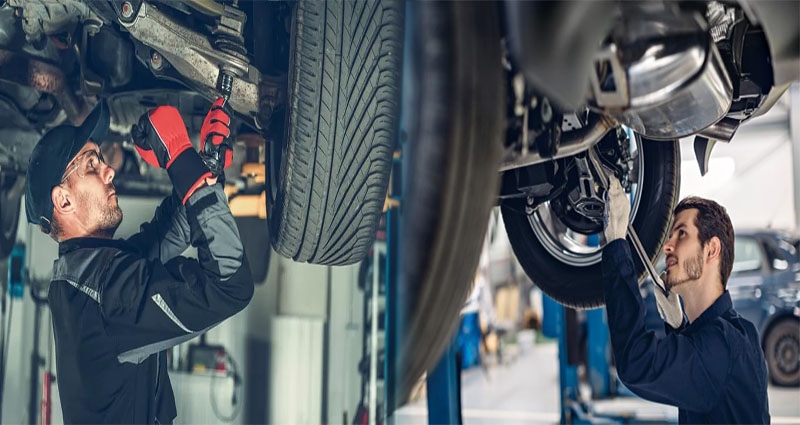The suspension system is an integral part of a vehicle’s overall performance and safety. Ensuring that it is properly maintained and functioning is a crucial responsibility of an experienced automotive technician. From servicing to replacing suspension components, these skilled professionals play a vital role in keeping vehicles running smoothly and safely on the road.
One of the primary duties of an automotive technician when it comes to suspension components is conducting routine inspections and servicing. Regular inspections allow technicians to identify any signs of wear, damage, or misalignment in suspension parts such as shocks, struts, springs, and control arms. By detecting and addressing issues early on, technicians can prevent further damage to the suspension system and ensure optimal performance.
Servicing suspension components often involves cleaning and lubricating various parts to reduce friction and maintain proper function. Technicians may also perform adjustments to suspension settings or replace worn-out bushings, ball joints, or other small components as needed. These routine servicing tasks contribute to the longevity and efficiency of the suspension system, providing a smoother and more comfortable ride for the vehicle’s occupants.
In some cases, the condition of suspension components may require the expertise of an experienced automotive technician to perform replacements. When suspension parts reach the end of their lifespan or sustain significant damage, technicians are responsible for sourcing and installing suitable replacements. This involves selecting the correct parts based on the vehicle’s make, model, and specifications, ensuring compatibility and optimal performance.
Replacing suspension components requires technical knowledge and skill, as it involves disassembling and reassembling various parts of the suspension system. Technicians must meticulously follow manufacturer guidelines and use specialized tools to safely remove and install components such as shocks, struts, or control arms. Additionally, they must ensure proper alignment and torque specifications to guarantee optimal handling and safety.
Furthermore, an experienced automotive technician understands the importance of thorough testing and inspection after completing suspension component servicing or replacement. They conduct road tests to assess the vehicle’s handling, ride quality, and stability, making any necessary adjustments to ensure everything is functioning correctly.
With their expertise and attention to detail, experienced automotive technicians contribute significantly to the overall performance and safety of vehicles through their servicing and replacement of suspension components. Their dedication to staying up-to-date with the latest advancements in suspension technology and following industry best practices ensures that vehicles under their care are in optimal condition.
The duties of an experienced automotive technician in servicing and replacing suspension components are crucial for maintaining vehicle performance and safety. Through routine inspections, servicing, and expert replacement of worn-out or damaged components, these professionals play a vital role in ensuring a smooth and comfortable ride. Their knowledge, skills, and commitment to excellence make them an indispensable resource for car owners seeking to keep their suspension systems in top-notch condition.










